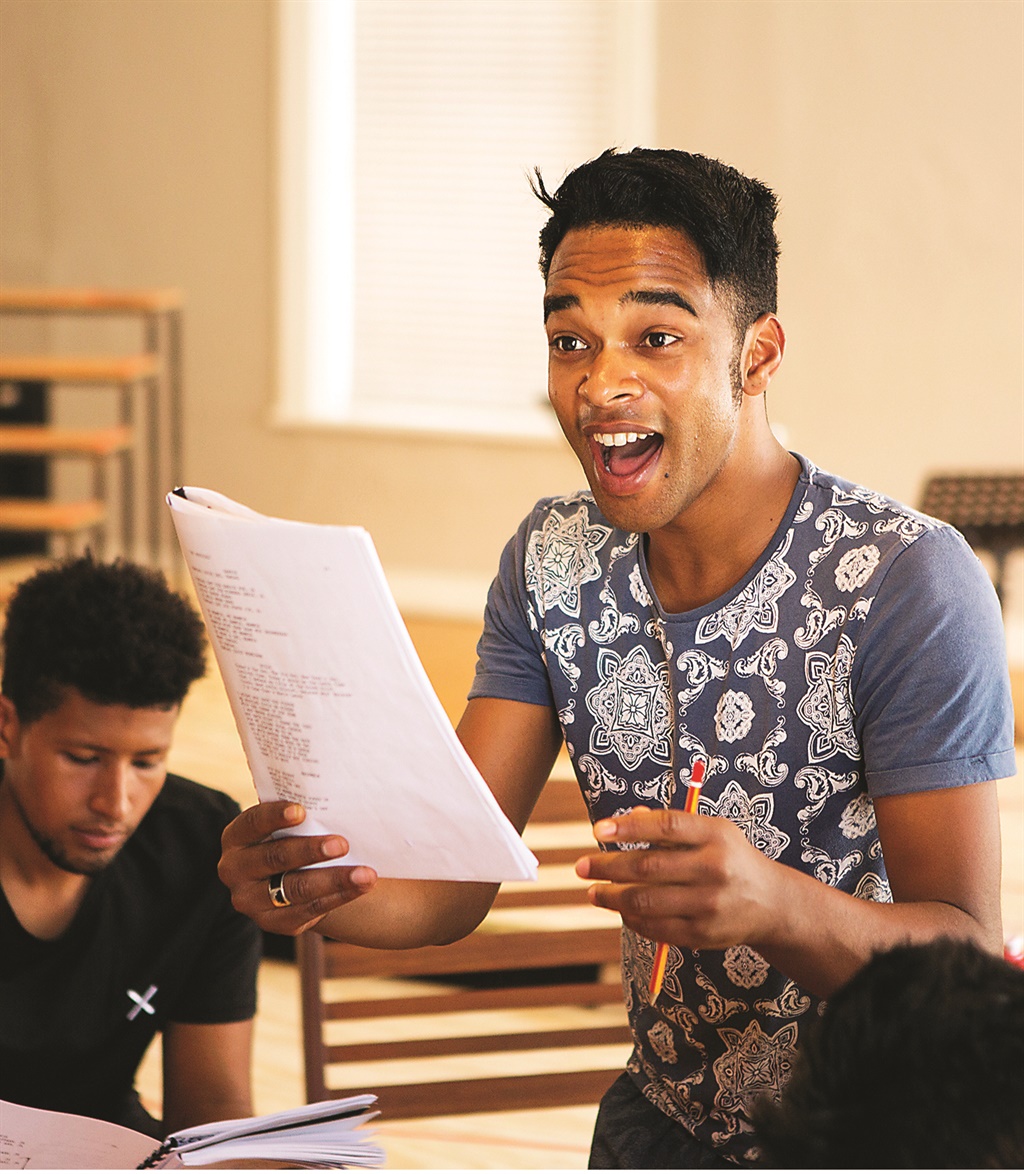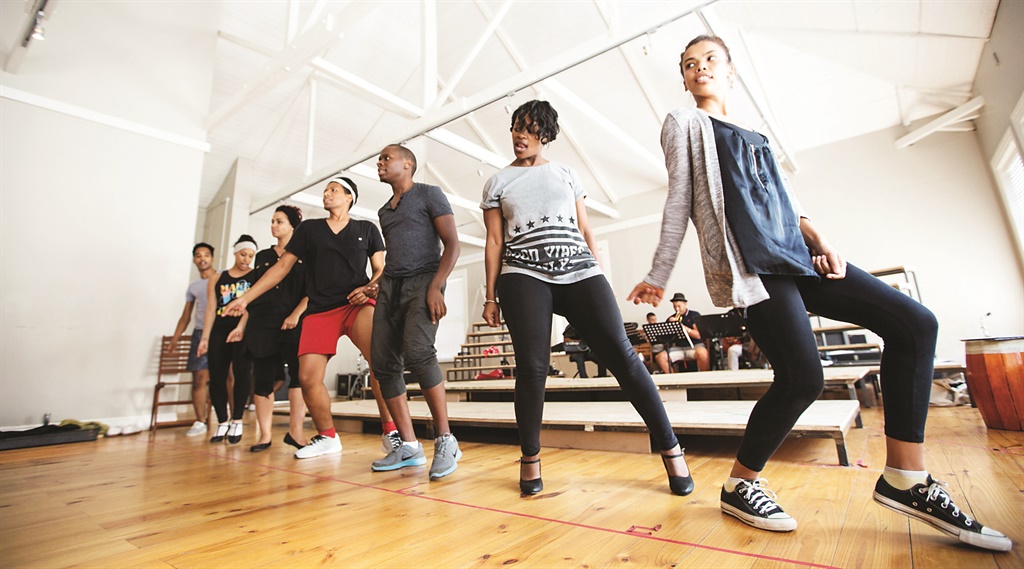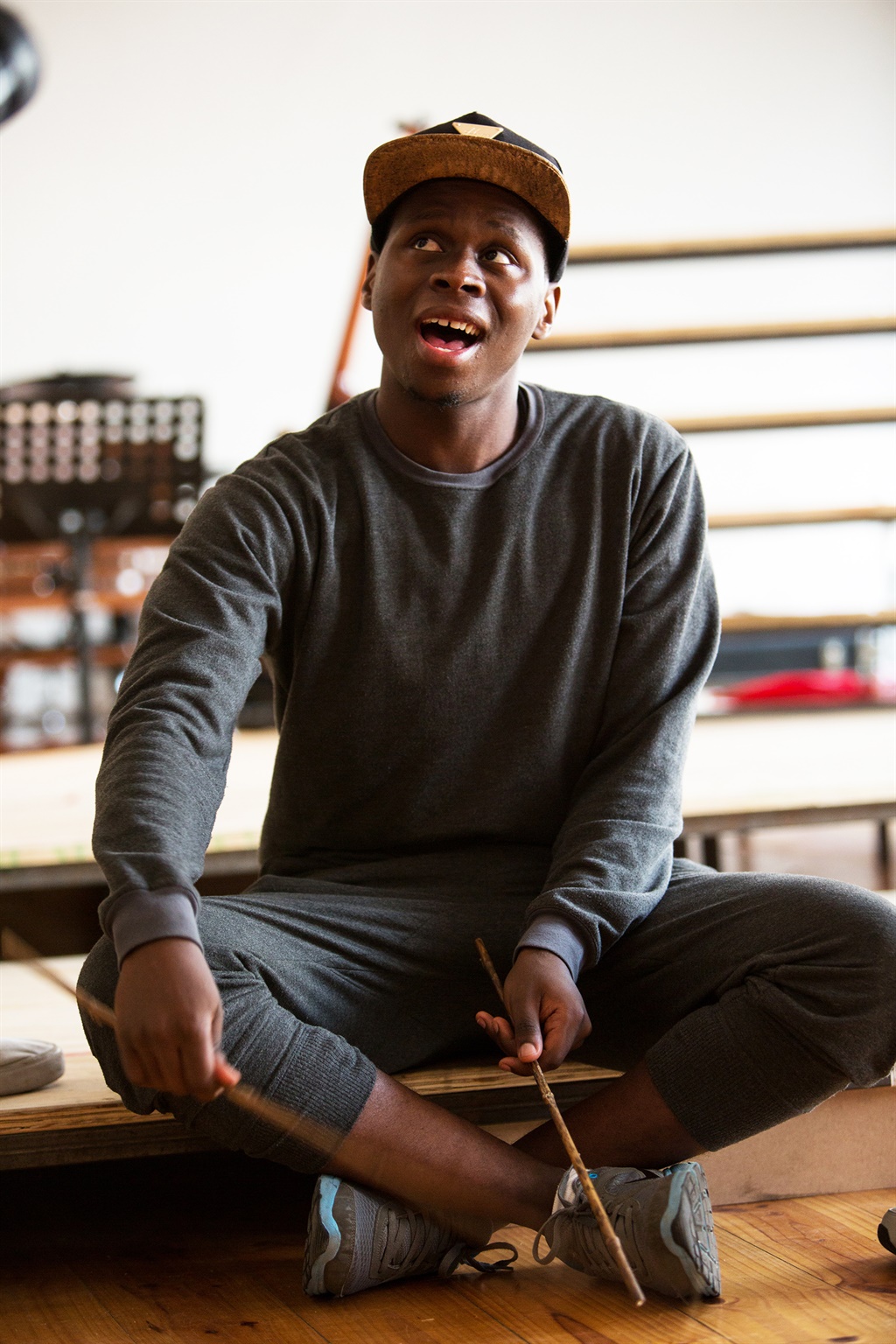
Thursday marks 50 years since Cape Town’s iconic District Six was declared a whites-only area, followed by forced removals. Music maestro David Kramer has created a new work, District Six – Kanala, to commemorate the event that tore a community apart.
The one thing everyone remembers about District Six is the music. How everyone would “langarm” at the Tafelberg Hotel on the weekend. And there was something about the alleys and the side streets, and the defiantly multicultural nature of the place that seemed to birth talented musicians like nowhere else.
The National Party had to tear it down. Everything that District Six was, there on the slopes of the mountain, dancing in pencil skirts and slicked-back hair, proved that apartheid did not work.
It took the bulldozers more than a decade to erase District Six completely – well, to physically erase it, flatten the buildings, remove the people, destroy the vibrant community, break the bonds, split the extended families up and scatter them to the wind. It will be 50 years ago on Thursday, on February 11 1966, that District Six was declared a whites-only area, and the forced removals began, work which was only completed by 1978, when the last building was flattened and the area settled into “a haunting”. Not even a haunting, as David Kramer remembers.
“Living in Cape Town in the 80s, you didn’t hear anyone speaking about it. It was so painful ... It was very quiet. There was nothing about it.”
It is partially due to Kramer’s pioneering work with late fellow musician Taliep Petersen that District Six – The Musical, this collective memory of the district, exists. That now-legendary production, mounted at the Baxter in 1986, was to mark the 20th anniversary of the declaration, and now, here we are 30 years later, with Kramer about to stage District Six – Kanala, opening on the 50th anniversary, in the district itself at The Fugard Theatre.
Kanala is a tribute show with a strong ensemble cast that features longtime Kramer collaborator Loukmaan Adams, as well as Bianca Le Grange, Andrea Frankson and Carlo Daniels. Drawing from the Kramer/Petersen songbook, as well as new material, it is a series of vignettes told by a narrator. As Kramer explains, “People would always say, ‘Ag, just give me this kanala or just do this for me, kanala,’ which means ‘please’. So I just thought Kanala would be recognisable. It’s the idea of talk about District Six. ‘Kanala ... like, District Six, please. Give us something.’ So I’ve got this young girl saying when she was a kid she used to crawl on to her granny’s lap and her granny had this photograph album with photographs of her friends and the place. And her granny would tell her, ‘You know, my girl, you know who this was? This was so and so...’ And so she, as a child, learnt all the stories around these pictures. So she would crawl on her granny’s lap and say, ‘Granny, District Six, kanala.’”
I had always imagined Kramer to be permanently possessed of that slack-limbed Chaplinesque walk hard-coded into the men of early South African television, a sort of Paul Slabolepszy lope. Instead, he skims across the dark floor of The Fugard lobby, his trademark little black hat neatly askew. For the whole morning he’s been doing technical run-throughs, testing the lighting against the projections of the images that comprise the grandmother’s photo album. It’s plain that he’s a perfectionist.
“I wanted to put a show together which, if you hadn’t been there, would illustrate what the district looked like,” he explains. “And if you did know District Six, then it would be nostalgic. I’m telling it from a young person’s point of view. This grandchild of a woman who lived in District Six.”
The Fugard is housed in a church that was part of District Six, around the corner from the District Six Museum, where a huge archive of life in the district is available. It was different when Kramer and Petersen wrote District Six – The Musical.
“What’s interesting is how little there was,” says Kramer. “There was hardly anything in book form available.” He pauses here to think. “It was 1986 ... It was a terrible time because it was the state of emergency. The country was tense and going up in flames ... I think that initially we got white audiences in and then, as people started to hear about it, it just took off ... like this is what they needed to relive that thing. It was still so painful and fresh. It was an unexpected reaction. And the music started that conversation again...”
Kramer explains his approach to the National Party’s erasure of histories like this: “Barney Simon from The Market theatre used to always say the theatre should be a living newspaper because we had all that censorship at the time and you didn’t know what was going on in the townships unless you went to a Market theatre production. And I found that really informative and stimulating, and in some way they printed it in the back of my mind that we really have to show this place that’s now being destroyed in a way that will hopefully speak to the people who lived there, because if they approve of it, then I don’t care what anyone else says.”
Kanala is also a tribute to Petersen, murdered in his home in 2006, a crime his wife Najwa Petersen was convicted of masterminding and was sentenced to 28 years in prison for. And it’s a tribute to many other people Kramer has worked with over the years, such as Salie Daniels, Cyril Valentine, Billy Jaftha, Dougie Schrikker, Al Hendricks and Zayn Adam, as well as Richard Rive and Vincent Kolbe.
“I met so many wonderfully talented people who have been denied access to the stage,” says Kramer, “and it was a great thrill and wonderful to be able to bring some of those talents to the stage.”
. . .
It’s hard to fully grasp how different the times were when Kramer started making music. Back in the 80s, for him to be creating what we might now call Kaapse Afrikaans was heresy. But to white audiences who opposed the apartheid regime, singers like Kramer and Johnny Clegg were often the entry point to discovering music made across the colour bar. In this respect, Kramer and his ilk were to a large degree pioneers for bringing these stories into the white man’s paradigm.
Cut to 30 years later: Kramer, a white man, telling the stories of District Six – which ostensibly belong to the descendants and former residents – leads directly to him being accused of cultural appropriation.
Performance artist Chase Daenos, who is the director of Da Kou-Kau Collective – a youth-focused, art-based not-for-profit dealing with removed heritage, indigenous practices and black pleasure/radical self-care in the Cape Flats – feels strongly that Kramer is operating in much the same way the apartheid government did – erasing coloured identity. Says Daenos: “He cannot speak to or of our real-life circumstances. And our issues as a marginalised population are completely ignored.
“Why,” Daenos wants to know, “is our history still being told through a white man?”
Kramer is well aware of these criticisms, from as far back as District Six – The Musical. He responds: “There were always people saying you shouldn’t have done that. For me – Taliep and I – at that time felt vindicated that it wouldn’t just become a show that white people thought was wonderful. It was a show that people from District Six who lived there said: ‘This is our show.’ I’m aware there’s always that danger of appropriation. Here we wrote the songs; we spoke to people; we take the stories we take. As a writer, I don’t have a sense of guilt or anything about that.”
Kramer’s Karoo Kitaar Blues Project faced similar criticisms.
“Once again, I happened to meet with all these extraordinary guitar players and violin players nobody knew about, so I brought them to the stage. But people would say I’m exploiting them. Well, I had a choice. I could have left them where they were, or I could provide a platform for them.”
Kramer continues: “So I listened to this guy I met in the middle of the Karoo, just listened to him play with this teaspoon. People went mad. They just went apeshit. So I think for the first time in their lives they were appreciated, they were acknowledged ... their stories were told, their photographs taken. They were recorded on DVD, and so on. And now they’ve died and we still have that. But if I hadn’t done anything just because I was scared people were going to point a finger...”
Kramer talks through a history of exploitation in the entertainment world ... “and this goes right down to the Saartjie Baartman days ... but I think we’re in a different time now and it is about working together; it’s about creating together...”
. . .
Of working with Kramer, actress Frankson says: “He handles the music and especially the stories of real people with the utmost respect and integrity. While also creating a platform for ‘coloured’ people’s stories to be told.”
Frequent collaborator Adams asks: “If David wasn’t bold enough to work and collaborate with Taliep Peterson more than 30 years ago, who would have done it?”
“Gosh, wow, is Mr Kramer white?” Le Grange shoots back at me. “I didn’t notice – he must have a coloured soul then.”
She goes on to say: “Storytelling is what we do and, as an actress and singer, I’m happy to tell the stories he writes. They’re rich in culture and tradition. The music is entertaining and touching. Taliep Petersen was his best friend – they made magic together. I find Kanala to be both a tribute and a musical remembrance piece.”
Daenos contends, though, that “Kramer’s representations typically resemble the dominant white outsider assumptions and stereotypes rather than ... the lived realities.”
Kramer sees it differently. “The songs I write are works of imagination, inspired by my observations, interviews and research.” He expands: “In my four decades of writing, I have depicted many people, ranging from an old Springbok rugby player to an African-American impresario in the 1890s ... I am not a historian, but I am very interested in stories that I have come to think of as ‘hidden history’.”
Speaking about his Ghoema project with Petersen, Kramer says they were “going into hidden history, stories that were erased by the powers that be, to focus on cultural aspects that the people performing the songs didn’t even know. That’s a positive kind of sharing of knowledge; it’s part of my research and Taliep’s knowledge of the music. You know Taliep was part of that; he coached [Kaapse] Klopse and worked with choirs, and all of that fed into what we did and what I learnt, and our combined efforts we were able to bring that to the stage, and pass it on. I mean, what claim do musicians who imitate American music have over the, I mean…” Kramer shrugs lightly, with a pained smile. “You know it’s too complex to start saying there is a nice line, and you can’t do this and you can’t do that. I wouldn’t stop because of that. No, this is all about passing it on, and I wouldn’t stop, no.”
. District Six – Kanala is on at The Fugard Theatre until February 19, with a possible extension




 Publications
Publications
 Partners
Partners















